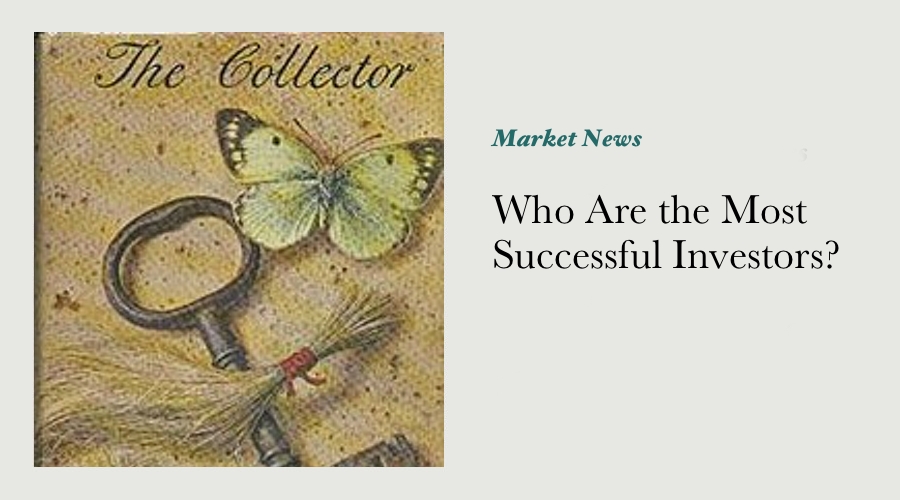Who Are the Most Successful Investors?

An interesting TV report about numismatic investment appeared on the US business news channel CNBC recently (the viewer will appear at the bottom of this page), and it made some references to who the most successful investors are in the rare coin market, points that I believe everyone should pay attention to.
 There are some in the numismatic trade, both here and elsewhere that are horrified when they think they might be mentioned in the same breath as a collector, a word they use as a pejorative rather than as a noun. Us collectors have probably suffered a bum rap ever since John Fowles had his novel of the same name published back in 1963 - just one of the 20th century novels I studied in English literature in high school.
There are some in the numismatic trade, both here and elsewhere that are horrified when they think they might be mentioned in the same breath as a collector, a word they use as a pejorative rather than as a noun. Us collectors have probably suffered a bum rap ever since John Fowles had his novel of the same name published back in 1963 - just one of the 20th century novels I studied in English literature in high school.
The opening of the Wikipedia entry for the book is pretty much as follows: "The novel is about a lonely young man, Frederick Clegg, who works as a clerk in a city hall, and collects butterflies in his spare time. The first part of the novel tells the story from his point of view. Clegg is obsessed with Miranda Grey, an upper-class art student. He admires her from a distance, but is unable to make any contact with her because of his nonexistent social skills. One day, he wins a large prize in the British football pools. This makes it possible for him to stop working and buy an isolated house in the countryside. He feels lonely, however, and wants to be with Miranda. Unable to make any normal contact, Clegg decides to add her to his 'collection' of pretty, petrified objects, in hopes that if he keeps her captive long enough, she will grow to love him. After careful preparations, he kidnaps Miranda using chloroform and locks her up in the cellar of his house."
Just why in blazes an otherwise sensible literature teacher thought it would be prudent to expose several dozen fourteen year old boys (not the first in line when it comes to emotional intelligence, however much further to the front when it comes to raging hormones) to a tale of a grown man that kidnaps the object of his desire is one that can be discussed another day, but if you aren't already familiar with Fowles' novel, you should now have some idea why collectors aren't always the most popular of people at a cocktail party.
Make no mistake, the Sterling & Currency customer service department is not sufficiently staffed that we will tolerate a "collector" that takes up half a table at a trade show so they can spread items out of our junk box, then offer such a paltry amount that if it were converted to an hourly rate it would insult an Indonesian sweat shop worker. Nor do I enjoy spending much time with those dedicated coin and note buyers that could do with a lesson in personal hygeine or good manners (says he) - yes, there are some kooks in the collecting world.
The recent television report on the US coin market however takes a different position - that dedicated and passionate collectors invariably end up being the most successful investors in the coin market! This conclusion might fly in the face of what some understand a collector to be, however I believe the track record of the most important collections in the Australian numismatic market reflect this fact - take a look through the major auction catalogues for the past 20 years, and the collections put together by dedicated collectors are those that appreciated the most.
The tips given by the presenter (one can only pesume it was provided by one of the staff at Heritage Auction Galleries) is that anyone participating in the market really needs to know what they're doing if they are to be successful, and further that one way of increasing the chances of success is to focus on one particular area. There are many prudent reasons for these observatiosn and advice, perhaps we should qualify in future that successful collectors are those that are dedicated, and have sufficient social skills that they are able to function normally in modern society, without kidnapping or otherwise criminally indulging their habit.